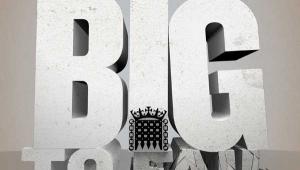So, thanks to the early birth of the new Cameron child, Nick Clegg looks set to stay in the government hot seat for a little while longer. He will be hoping that the young guns at the Institute for Fiscal Studies, having worked through August to show that the first Coalition Budget was not in fact progressive, now take a bit of a break.
But it is hard work for the Lib Dems to make sure that, when they are not looking, their Coalition partners do not push forward policies that have more of a Tory flavour than a Lib Dem one. And this applies both to the big issues and the smaller ones.
On the bigger issues at least they can see them coming: the issue here is do they have any real threats to make if they do not like them? We all know that they cannot threaten to bring down the government without skewering themselves electorally. And at an individual level, which of them is really going to offer to resign on a point of principle – after having signed up to a coalition that inevitably had to involve throwing a lot of principles out of the window?
But just as important are all the many smaller decisions. In my experience, a government makes a difference not just through its grand new policies but because it brings in a new mood and tone to decision making. In the Labour years, every decision that ministers and officials made was a bit more progressive than it would have been under the previous regime. And it is that multitude of decisions that ends up giving the country a different centre of gravity, a different feel. So influencing all of these must matter to the Lib Dems.
In this new world, Cabinet Committees become much more crucial than they have been for years. And the role of Lib Dem Secretaries of State on these bodies is really key. That needs to mean a change in the way they operate. In ’normal’ times, ministers on a committee that is not considering issues that directly affect their departments, take only a passing interest in their goings on. Their officials will do them a brief but it will generally just reflect how to defend their department's position. In a Coalition situation that is no use: a lot more is needed.
Take Energy secretary Chris Huhne, for instance. A very busy man in a key brief . But he is also a man who is on the Home Affairs Committee, an area where Lib Dem instincts and Tory ones are not likely to over-lap all the time. Surely he cannot just rely on his DECC officials to do a brief. Now he needs his political staff to go through the papers, do a bit of homework, see if there is anything he needs to block, or indeed something he should be pushing himself. So a lot more work for advisers, but I suspect crucial if the Coalition is to survive.
Danny Alexander, as is always the case with Chief Secretaries to the Treasury, is on many committees. But with money so tight, how much will he be able to use that leverage to defend and promote Lib Dem positions, when he has his work cut out just to play the Treasury role? And although Nick Clegg chairs a couple of key committees, will he be able to use that to push agendas - or will he need his fellow Lib Dem committee members to help him out?
The government has its ‘Coalition Committee’ and its ‘Coalition Operation Committee’ for when things get tough. But my guess is that all will be striving to avoid them having to preside over too much conflict. Coalitions live or die on real issues, personalities and party politics. But making sure that the machinery available really works will be vital to this one's success.
Dan Corry is a writer and consultant on public and economic policy. He was senior adviser on the economy at Downing Street from 2008 to 2010.











